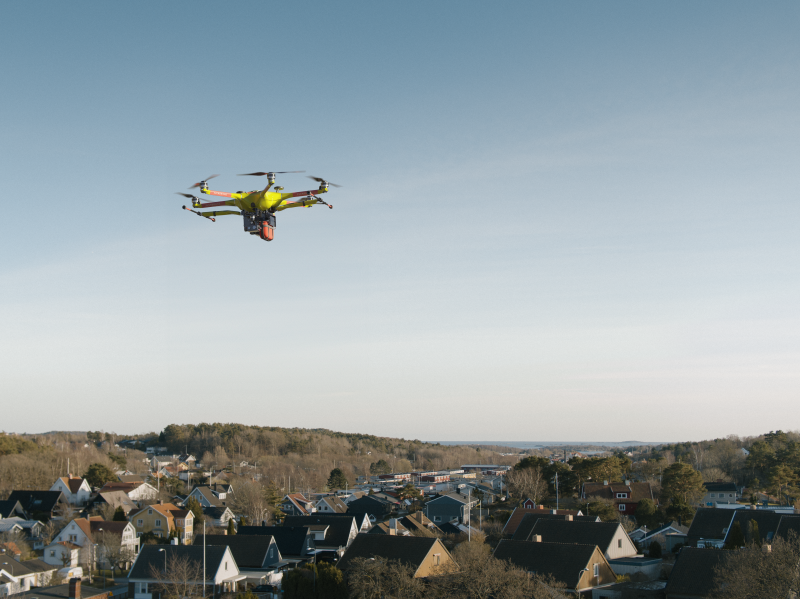
Photo credit: Everdrone
We’re proud to be part of a project which will test how drones could be integrated into the UK’s 999 emergency response system to rapidly deliver defibrillators to patients experiencing out-of-hospital cardiac arrest (OHCA).
The project has been launched by the University of Surrey, Air Ambulance Charity Kent Surrey Sussex and SECAmb and has been funded by the National Institute for Health and Care Research (NIHR).
The project will be divided into two sections. In the first, researchers will develop and refine the drone delivery process through a series of simulations, coordinating 999 call taking, Air Traffic Control, ambulance dispatch and drone operators.
In the second part, interviews will be conducted with a diverse group of people – including OHCA survivors, family members, responders and members of the public – to understand the public’s perception of drone technology, including any barriers or concerns, and to ensure ease of use for responders.
With survival rates for OHCA in the UK currently less than 10 per cent, a key challenge is the delay in delivering life-saving defibrillation. While public Automated External Defibrillators (AEDs) are widely available, getting them to a patient in time is often difficult. This 16-month project will explore using drones to rapidly deliver AEDs to the scene of an emergency.
Dr Scott Munro, Lecturer in Paramedic Practice at the University of Surrey and co-lead on the project, said: “This research is the first step towards integrating drone technology into our emergency response systems. Our ultimate goal is to develop and test the procedures needed to seamlessly introduce drone delivery of AEDs into the 999-emergency system.”
Professor Kevin Munro, Director of the NIHR Research for Patient Benefit (RfPB) Programme said: "This project is a great example of how NIHR’s RfPB programme supports life-saving innovation. Using drones to deliver defibrillators could help emergency teams reach patients faster, improve survival after cardiac arrest, and bring cutting-edge technology directly to the NHS frontline, while working with the public to ensure it’s used safely and effectively."
Dr Craig Mortimer, Research Manager at South East Coast Ambulance Service NHS Foundation Trust (SECAmb) said: “Rapid intervention is vital in managing out-of-hospital cardiac arrests. As demand continues to grow, the opportunity to integrate this technology into future healthcare systems represents real progress in ensuring ambulance services can work with the communities they serve to strengthen the chain of survival and give patients the best chance of a positive outcome. Being a partner in this research, we are eager to explore how this new initiative could strengthen our cardiac arrest care pathway."
